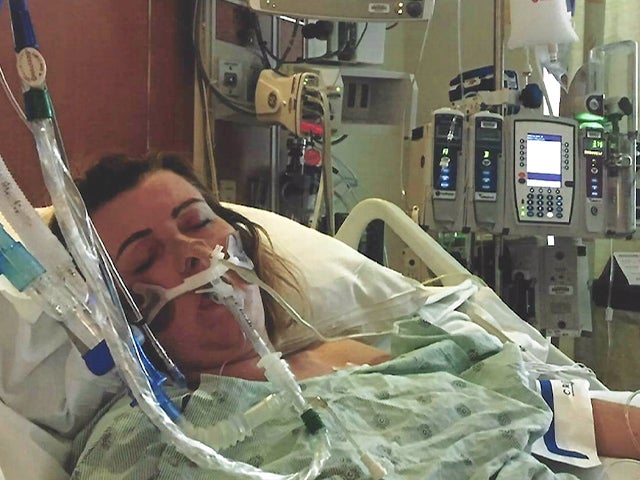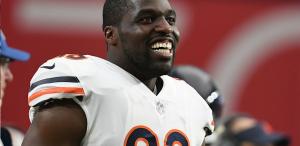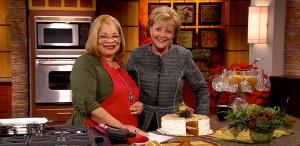Thousands Pray for Woman with ARDS Diagnosis
Sandra and Roger Bretting have been happily married for over 30 years and have two daughters. One night while Roger was on a business trip, Sandra became very ill. Their daughter Dana was 17 at the time.
“I woke up in the middle of the night and I just heard screaming. She's just like, 'Something's wrong, something's wrong. Like, I started throwing up a bunch.' But she's like, 'I think I needed to go to the ER.'" Dana continues, “Seeing someone you love so much just become sick so quick. And knowing that every decision I make in this point, it's pretty critical. Um, to the point of like, do I call 911?”
Dana braved the icy roads and drove her mom to the ER while her dad found a flight home.
Sandra had a blockage from a kidney stone causing a severe infection. The doctors planned to insert a stint to drain the infection.
Dr. Ekeruo, the urologist that treated Sandra remembers her case, “As soon as I went in and placed the tube and got beyond the point of blockage, there was a lot of pus, and a lot of debris, and it looked cloudy. Tt looked dark, and it looked like this had been going on for a few days and was just at the tipping point.”
Her husband Roger, finally by her side, says, “I'm praying that the doctors are going to find a solution here. They've told me that she has sepsis and they're looking for the correct bacterial infection, and to get to her the right antibiotic, but she continues to deteriorate.”
After surgery Sandra was moved to the ICU and developed ARDS, a deadly type of respiratory failure that makes it difficult to ventilate a patient.
This diagnosis really shook Roger, “I know what ARDS was. My best friend died of it at the age of 27 many years ago. I'm sitting there thinking, this is bad news. This is - this is about as bad as it can get.”
Dr. Ekeruo reflects, “She's on medicines to basically keep her in a coma, to keep her relaxed. You have the breathing machines helping her breathe. At one point, the intensive care unit team thought she wasn't gonna make it and actually had her husband notify the family members that if they wanted to come and spend the last few minutes with her.”
In tears, Roger states, “I've got to go out and make a phone call to my 17-year-old daughter, who is staying at the house, and then I've got to wake up my other daughter in Dallas. It's 4:30 in the morning and said, 'Listen, you gotta - you gotta come. You gotta come see your mother.' And a tough spot.”
His daughter Dana somberly remembers, “I knew things are very serious. We as a family might be preparing to say goodbye. Like no medicine is going to be able to heal this unless the Lord answers this prayer. And ultimately knowing that His will is going to be done and either way His will is perfect. And I was going to have to be obedient to that.”
Roger barely speaks, “Probably the toughest part besides watching your-your wife die, of 30 years is-is watching your 17-year-old daughter who's got her whole life ahead of her, watching her mother die.”
“This is hard, and it hurts me to say this prayer, but I'm going to pray,” says Dana. “One, 'Would love for you to heal my mom. Would like love every result to start coming back positive, Lord, but would love more for you to give me the obedience to trust in you. '“
Roger goes back to that time of despair, “I was bottomed out. Total bottom. No, I did not have a lot of hope. And that's-that's when I sent the text, after I called my daughters, I-I sent a text to a buddy and uh said, 'Listen, you know, if you guys were ever going to pray, pray now. Sandy's not doing well. She's not gonna make it.'"
Dana found solace in the communities’ prayers, “I mean, immediately I knew that people were praying so hard because they dropped everything to come to our side. People have to work, people left every responsibility they had, to just come and be with us. Every time I went into or out of the ICU, I was just like enveloped of like a team of 30 people. And I like to call it Home Team because it really was a home team just fighting.”
Roger hints at some hope, “You know, it turns out thousands of people had prayed. People would show up in the waiting room of intensive care. The support was-was amazing."
“There was one day where we saw a little bit of hope, and we felt like, all right, this is where there is some air.” Dr. Ekero warmly states, “then the treatment is working, her lungs are starting to open up, and it was like a ray of hope at this really dark and challenging time for the family.”
Sandra started a dramatic recovery and after ten days in the hospital was cleared to go home.
Dr. Ekeruo was even impressed by the prayer warriors, “I remember in the waiting area it was like a small church. I think one day they were like, I think 50 or 40 people there, and I was just blown away. Because honestly, without the prayers and without the whole team helping her, I don't think she could have made it. And honestly, I've seen cases where everything is done right, and patients still don't make it. So a case like this that was really advanced, and where she was able to pull through, I think you could say it was a miracle.”
Relieved to be home, Sandra says, “I learned so much about prayer. One of which was, you know, to go to God first, don't go to God last. Because as our Father, He wants to hear from us all the way through, not just when there a trauma, not just when there – we're at the critical point. But if we have that relationship with Him, it's so much easier as to fall back on that relationship and say, 'Okay, I'm in God's hands now.'"
“I'm so thankful that the Lord listens to our prayers,” says Dana. “And I'm so thankful that I got to witness an answer to prayer.”
With gratitude Sandra states, “I think it's increased my faith even more because every morning now when I get up, I make it a point to say, 'Thank you God for one more day.' And I think about all the things in the future that I'll get to see that I wouldn't have gotten to see otherwise; such a gift. So yeah, God has really blessed me. And again, I don't know why He blessed me and-and not others in that way, but I'm just thankful He did.”
Roger smiles, “Prayer works, you know. For-for any-any survivor of any kind of, you know, medical trauma, you know, prayer works. God does perform miracles.”







